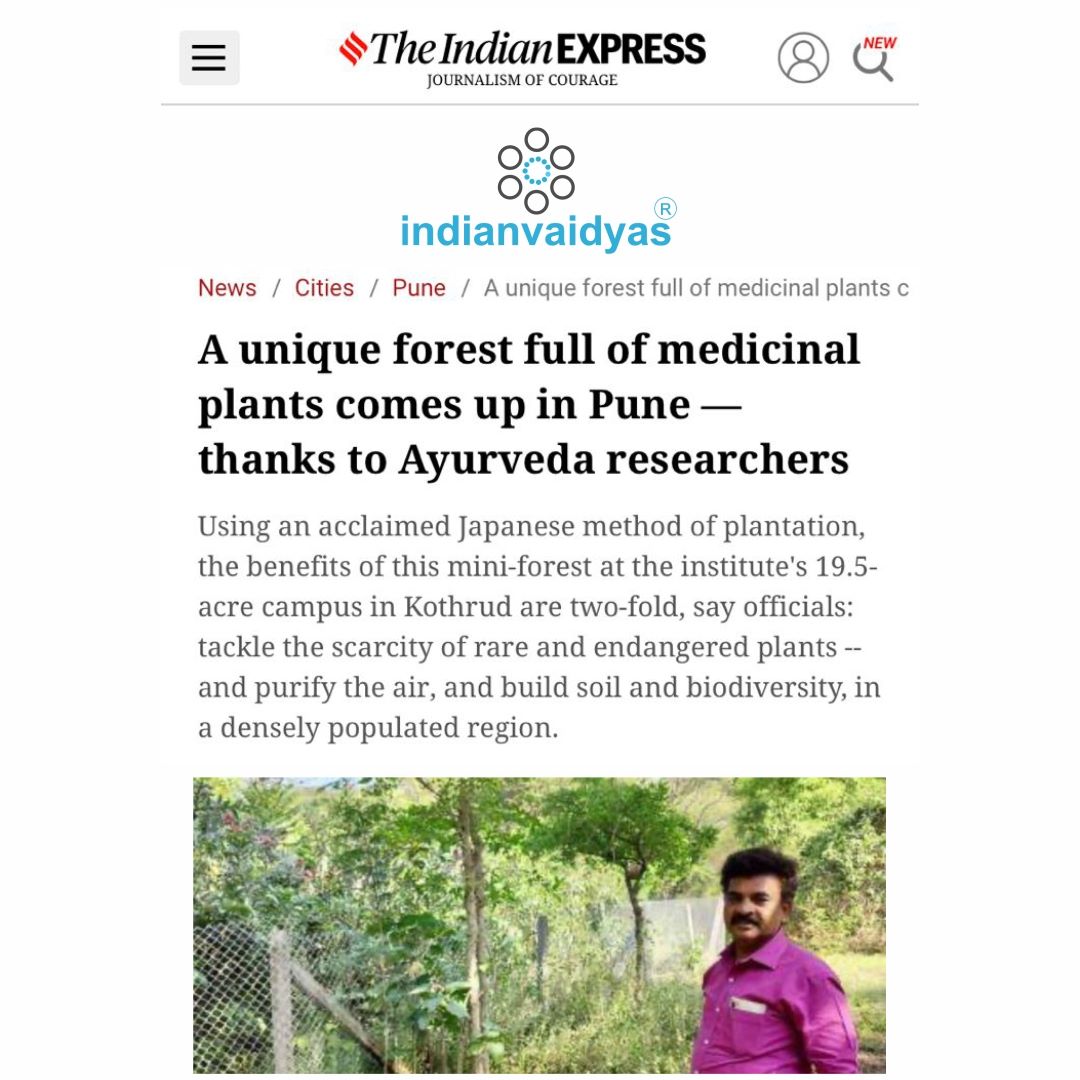A unique forest full of medicinal plants comes up in Pune ÔÇö thanks to Ayurveda researchers
26-May-23 05:22:04

Using an acclaimed Japanese method of plantation, the benefits of this mini-forest at the institute's 19.5-acre campus in Kothrud are two-fold, say officials: tackle the scarcity of rare and endangered plants -- and purify the air, and build soil and biodiversity, in a densely populated region.
Have you ever seen a forest full of medicinal plants? It’s right here in Pune city.
Be it Agastya, Agnimantha, Arjun, Ashok, Japa or Nimba — a bunch of medicinal plants cultivated as part of a first-of-its-kind experimental project has grown into a mini-forest inside the Regional Ayurveda Research Institute in Pune within a span of just three years.
Using an acclaimed Japanese method of plantation, the benefits of this mini-forest at the institute’s 19.5-acre campus in Kothrud are two-fold, say officials: tackle the scarcity of rare and endangered plants — and purify the air, and build soil and biodiversity, in a densely populated region.
“Across a plot of 3,000 sq ft, as many as 1,250 trees have grown in this mini-forest. We planted 30-50 native medicinal plant species and within just three years, they have grown so well,” said Dr Arun Gurav, Research Officer in charge of the institute.
Officials say this is the first such initiative by the Central Council for Research in Ayurvedic Sciences — an autonomous body under the Ministry of Ayush — with gardens across regional ayurveda research institutes in Pune, Jhansi, Ranikhet and Bengaluru.
“In Pune, the experimental trials to create a micro-forest of medicinal plants by using the Miyawaki method were approved around 2018-19. The aim was to develop a forest of medicinal plants under controlled conditions and compare it with a plot where plants were cultivated without using this method. The results of this project have been submitted to the Council for publication,” Gurav said.
According to the method, pioneered by Japanese botanist Dr Akira Miyawaki, various native species are planted close to each other so that they receive sunlight only from the top and grow upwards rather than sideways. As a result, the plantation becomes approximately 30-fold denser, grows 10-fold faster, and becomes maintenance-free after three years.
Set up more than 60 years ago, the institute initially carried out surveys, and collected and cultivated medicinal plants. There are over 400 of these plants now at the institute’s Nehru Garden, including trees, shrubs and herbs. When The Indian Express visited the site, the “Bauhinia vahlii Villar”, a vigorous climber known for its anti-inflammatory properties, was in full bloom. “These climbers can also help arrest deforestation and soil erosion,” Gurav said.
The mini-forest can be accessed for educational purposes. “It is not open for those who want to roam and walk around. However, group tours are arranged. For instance, we had a group of senior citizens… The institute gets several inquiries from schools wanting to organise educational tours. We also have graduate and post-graduate students of ayurveda, botany and life sciences visiting the institute to see the herbarium and take a deeper dive into how these plants are grown,” he said.
According to the official, the recent certification by the National Accreditation Board for Testing and Calibration Laboratories for the herbarium and pharmacognosy laboratory (for drugs of natural origin) has been a huge boost. “The herbarium contains 16,000 specimens of medicinal plants collected from different locations in Maharashtra and Gujarat. This is maintained for reference purposes,” he said.
This centre is now keen on standardising and validating plant-based formulations that have been traditionally used for a range of ailments — from treating common cold to improving memory. “At the institute, more than 450 drugs have been identified and standardised for various parameters,” Guran said.
With research in ayurveda and other traditional medicine systems receiving a boost, animal experiment studies are also being planned. “An animal house is being developed at the pharmacology section to undertake pre-clinical testing of Ayush drugs. It will be ready by July 2023,” the official said.
SOURCE & CREDIT: THE INDIAN EXPRESS